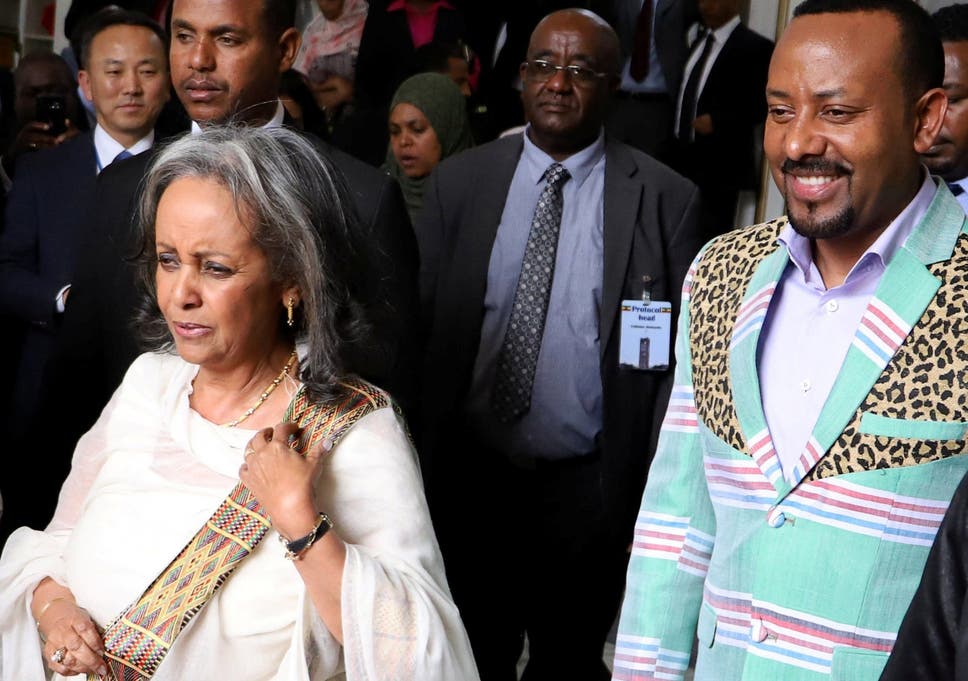
A week after Prime Minister Abiy Ahmed of Ethiopia filled half his new Cabinet with women in a radical overhaul, the country’s parliament took another step towards gender parity Thursday by appointing the country’s first female president.
Sahle-Work Zewde, 68, a seasoned diplomat who has held positions in the United Nations and worked in peacekeeping operations in Africa, accepted the position after the unprecedented appointments of women to lead the Defence Ministry and the secret intelligence agency, a long-feared state organ that recently got a face-lift. (It is now called the Ministry of Peace.)
“In a patriarchal society such as ours, the appointment of a female head of state not only sets the standard for the future but also normalises women as decision-makers in public life,” Fitsum Arega, the prime minister’s chief of staff, said on Twitter.
Though the position of president is considered largely ceremonial, involving opening Parliament and appointing ambassadors, the decision to place Ms Zewde in the role carries significant symbolic weight, said Selam Musse, a gender and media consultant based in Addis Ababa, the capital.
Having a female leader “speaks volumes for women and knocks on every door,” she said, “especially in a country where patriarchy plays a decisive role in political, social and economic structure of our country’s politics.”
Mr Ahmed came to power in April, and the appointment of Ms Zewde, now Africa’s only female head of state, is the latest addition to a series of whirlwind changes in Ethiopia. The country had long relied on a government model that resembles China’s, emphasising state-led economic growth and a suppression of political dissent.
In six months, he has officially ended two decades of hostilities with Ethiopia’s longtime rival and neighbour, Eritrea; started loosening a tightly controlled state-run economy and opened up major industries to foreign investment; pledged multiparty elections; released thousands of political prisoners; and allowed leaders of a previously outlawed opposition group to return to the country.
His latest moves are part of a “reform mentality within the ruling party, a general push towards shaking up the bureaucracy,” said Jason Mosley, a research associate at the African Studies Centre at Oxford University. “Ethiopia still is, despite all the development, a conservative culture on average. It’s still mostly rural, and many women don’t have equal opportunities as men.”
The sudden changes have burst old wounds, prompting violence in various parts of the country where ethnic tensions run particularly high. Still, appointments of people such as Ms Zewde, a relative outsider to the inner politics of the ruling coalition, are thought to pacify critics worried about ethnic or political affiliations poisoning effective leadership.
“I am a product of people who fought for equality and political freedom in this country, and I will work hard to serve them,” Ms Zewde said in her acceptance speech to Parliament.
She also promised to work on issues concerning women. “If you thought I spoke a lot about women already, know that I am just getting started,” she said in a quote that was widely circulated among social media users in Ethiopia.
Ms Zewde was appointed in June by UN Secretary-General António Guterres as his special representative to the African Union and head of the UN Office to the African Union as undersecretary-general. She was previously director general of the UN office in Nairobi, Kenya.
Ethiopia has made remarkable progress, in just a single generation, to increase the enrolment of girls in primary schools. But it still suffers from large gender disparities, according to a UN study.
Women are more prone to disease than men, the study said, and although half the country’s labour force is made up of women, a majority of them are unpaid because most work as farm labourers. Female genital cutting and child marriages are still prevalent, particularly in rural areas, which make up about 80 percent of the country.
“We need a bold leader who actually sees women beyond being mothers and sisters but be inspirations and let others become role models,” Ms Musse said.
Ethiopia, Africa’s second most-populous country and one that 30 years ago was a byword for famine, is more organised, ambitious and centrally controlled than many other governments on the continent – the ruling coalition intends to transform it into a middle-income country by 2025.
Despite the staggering pace of progress, it is still a deeply authoritarian state – though Mr Mosley said that was precisely what has allowed Mr Ahmed to change things so quickly.
“You can have these kind of radical overhauls of gender balancing a Cabinet when it’s authoritarian,” Mr Mosley said. “All the trade-offs necessary in a more competitive political landscape are part of the thing that keeps western democracies from achieving these kind of results.”
The New York Times







